Verdun: Lest We Forget
For the first week of our big trip, we drove through France as fast as we could, escaping the unbearable August heat. Although the weather was not much more pleasant than the blistering hot Spanish summer we left behind, in terms of Overlanding, France has been good to us. We made a practice to camp at lakes, Lisa’s favorite way to cool off after a long day in the car. We found many appealing routes but resisted the urge to slow down and make detours - France would have to wait for another trip, dedicated solely to exploring its trails and landscapes.
The first place we truly stopped at was Verdun, a pin that waited patiently on our “Want to go” list on Google Maps for the road to take us to this part of Europe. The night before we camped next to a small farm. The spot was less hidden and remote than we prefer, but nevertheless very pleasant, apart from fifty or so cows closely following our every move. After a quiet breakfast, we set out for the day.
The battlefield is located outside of the city, in a vast pine forest. The important sites are connected by dirt roads, narrow but not at all complicated. We spent an entire day exploring the area, the trails a piece of cake for our Ford Ranger.
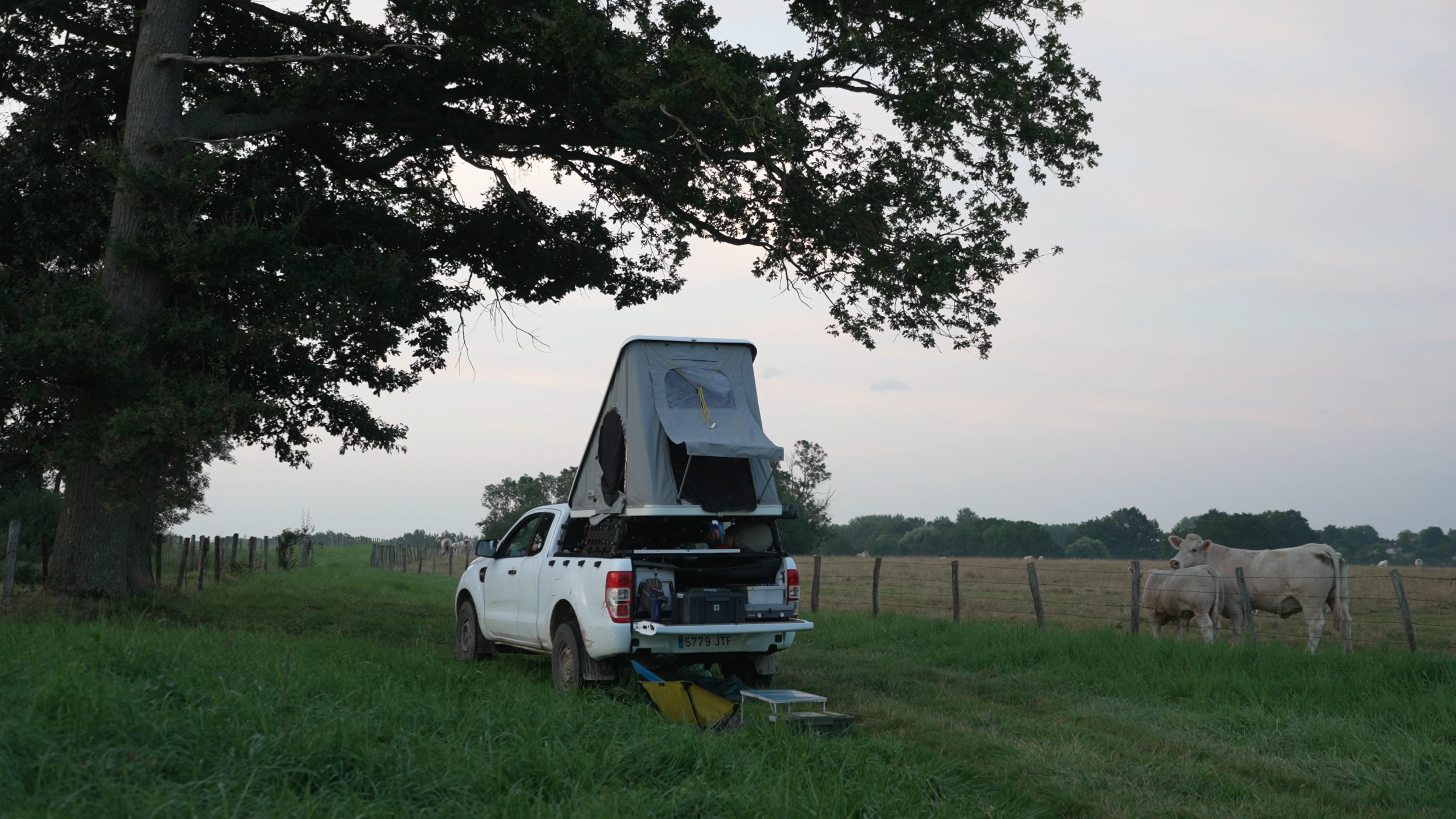
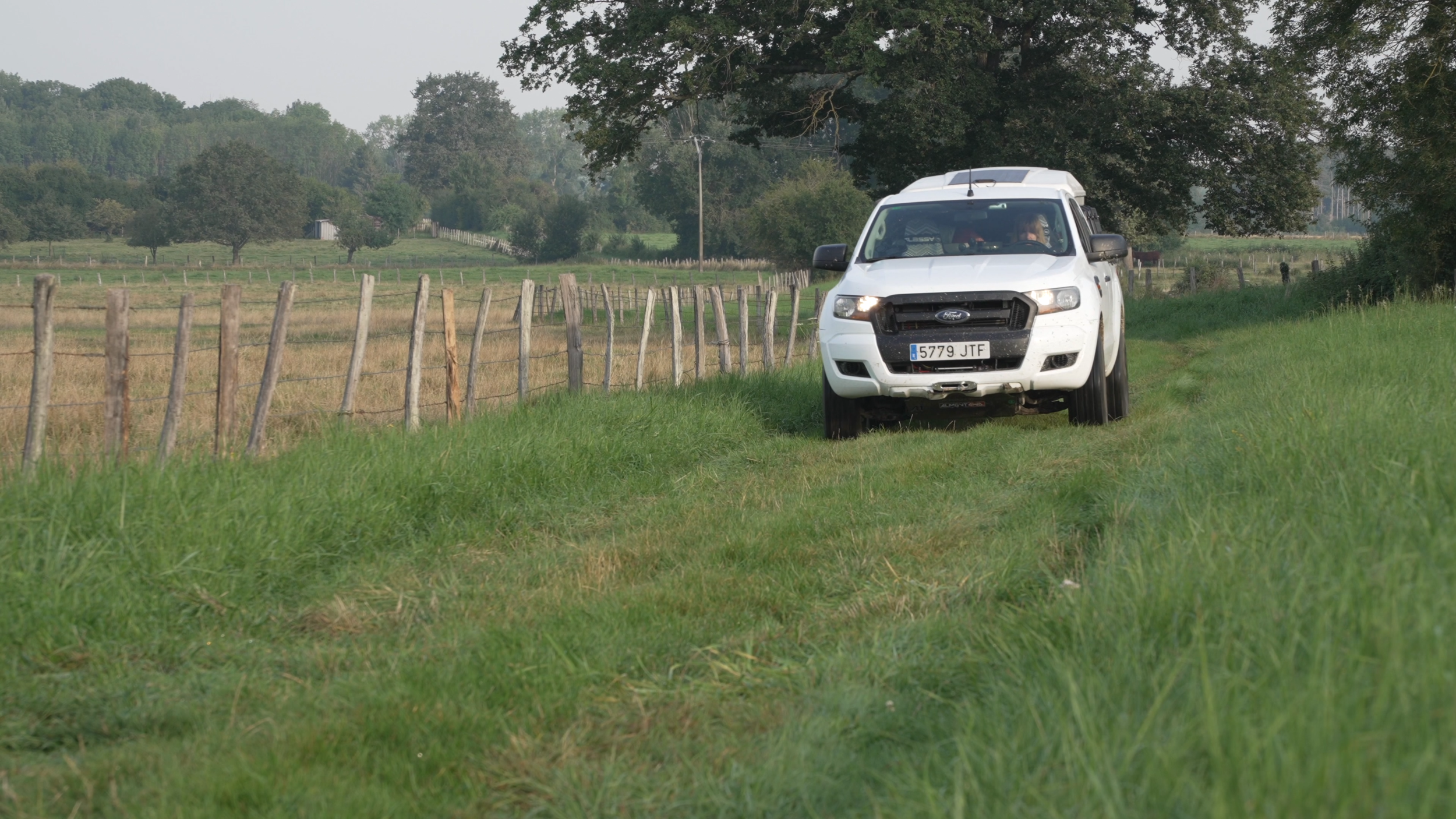
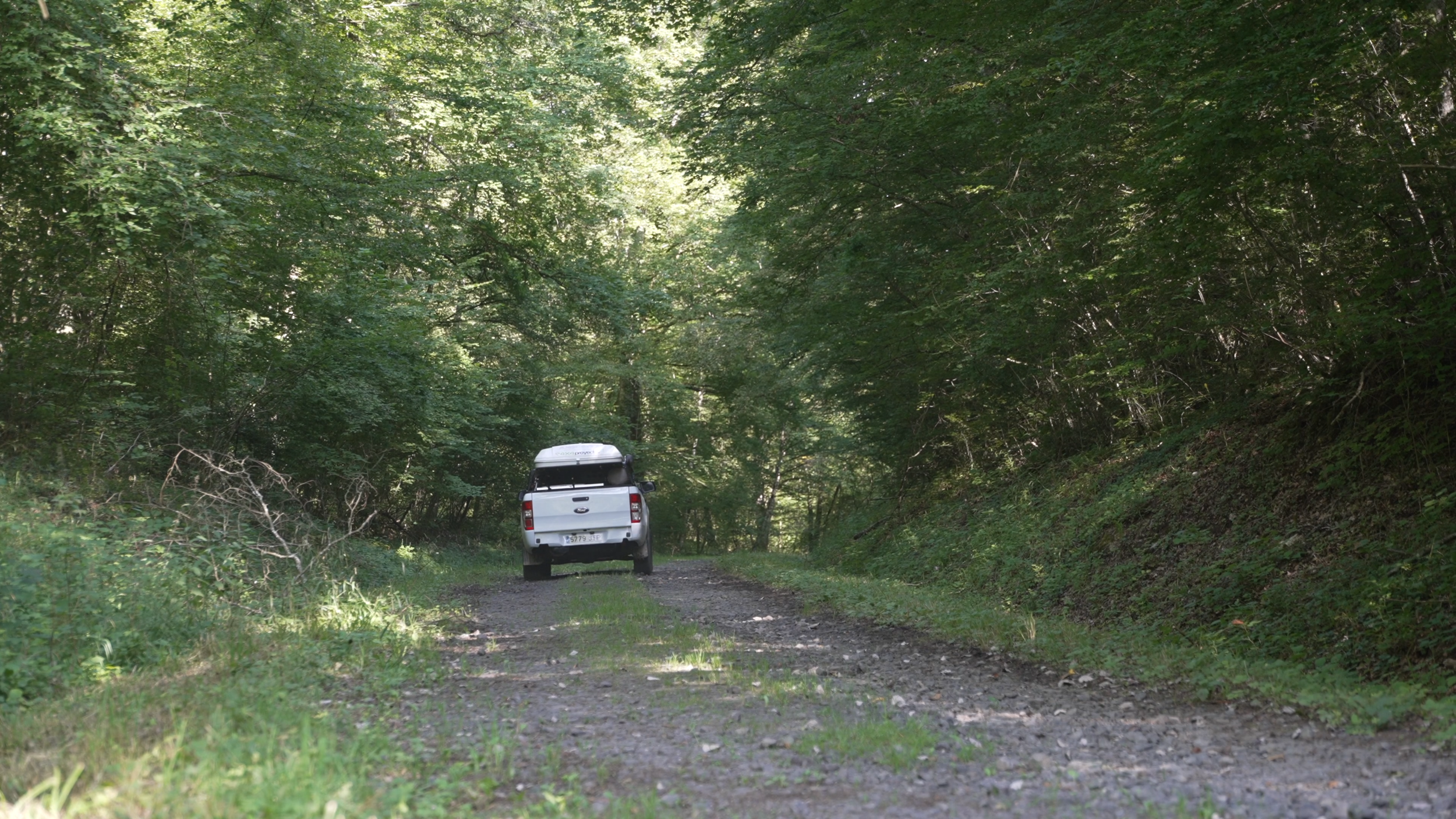
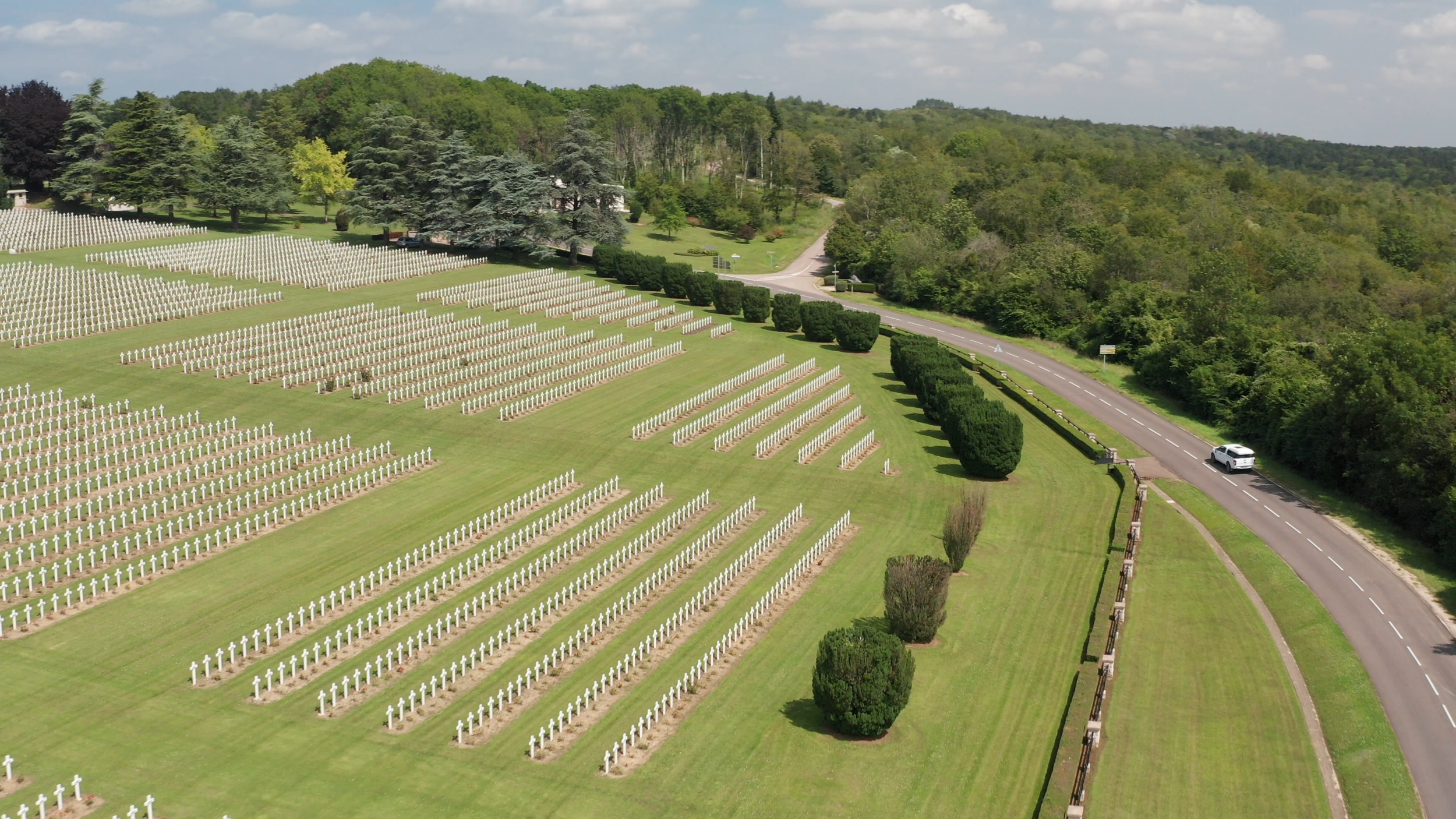
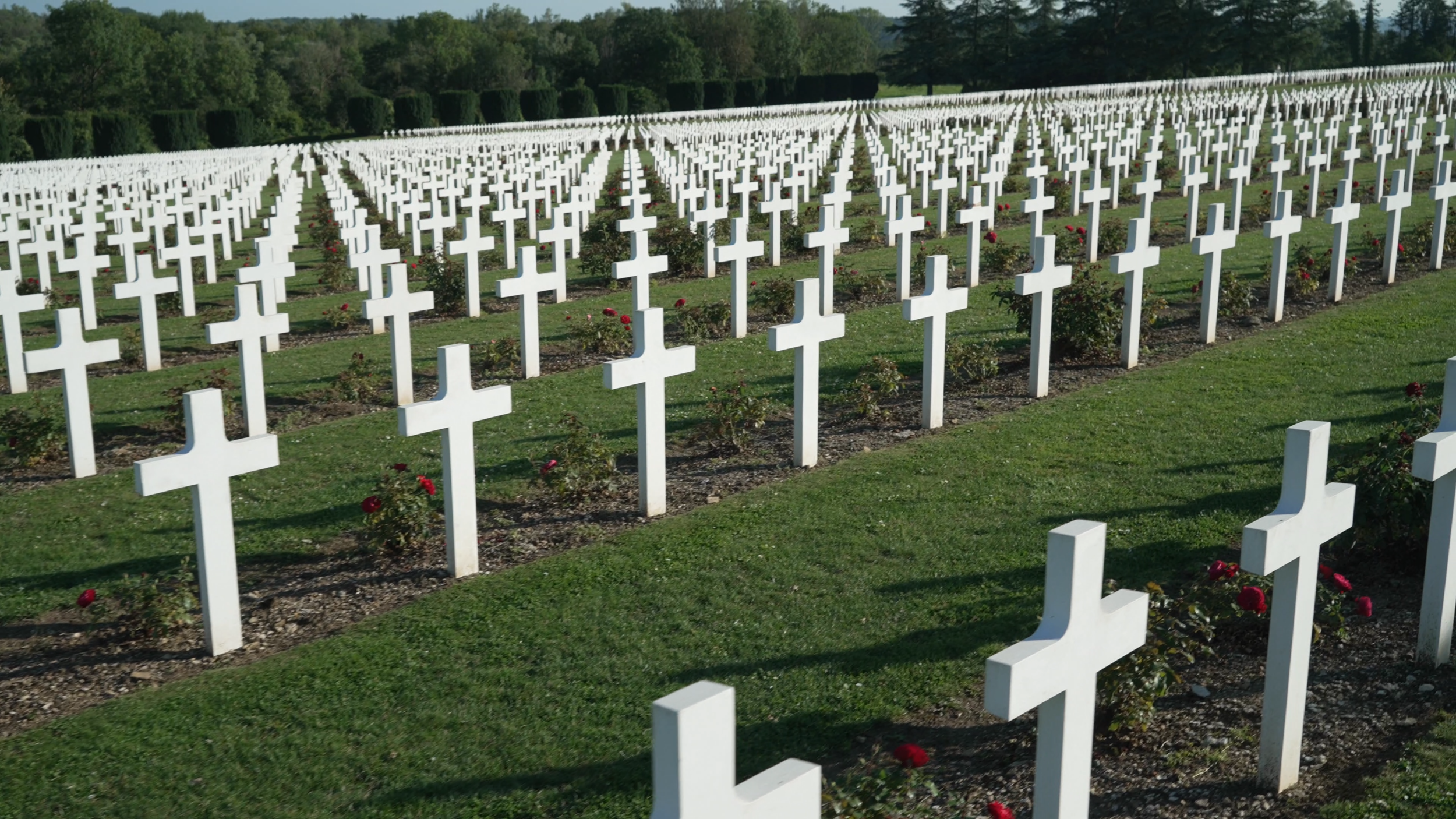
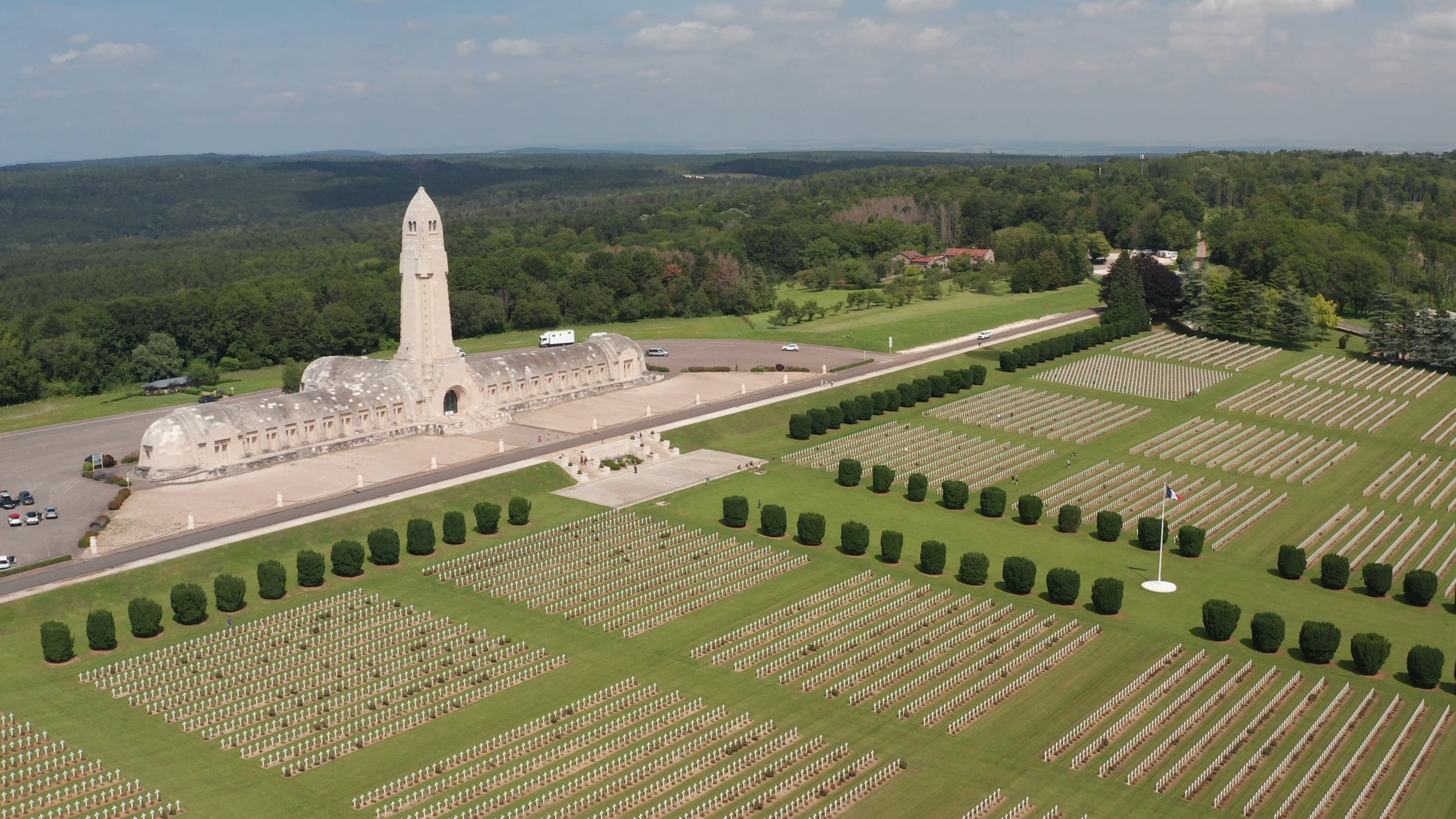
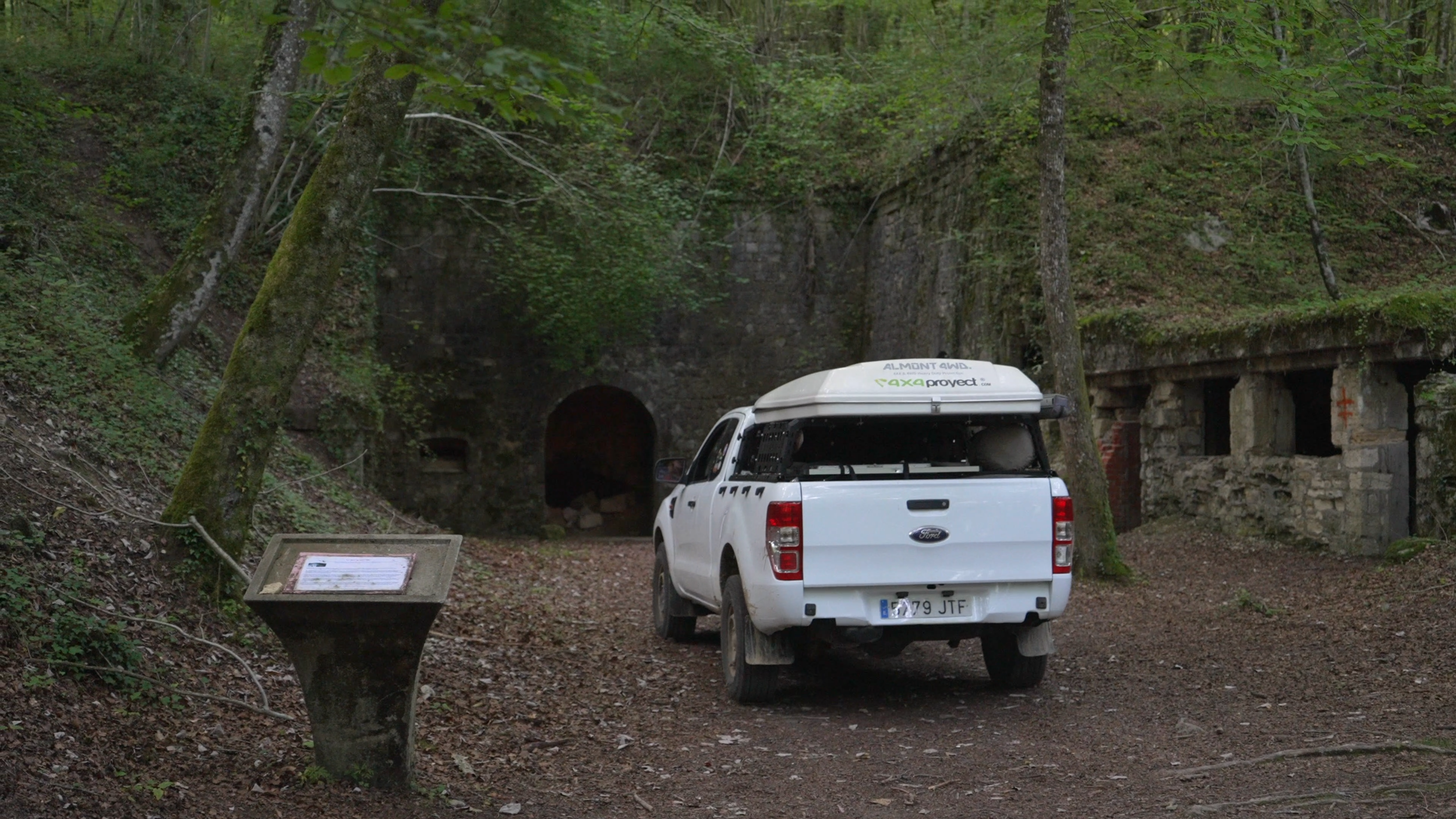
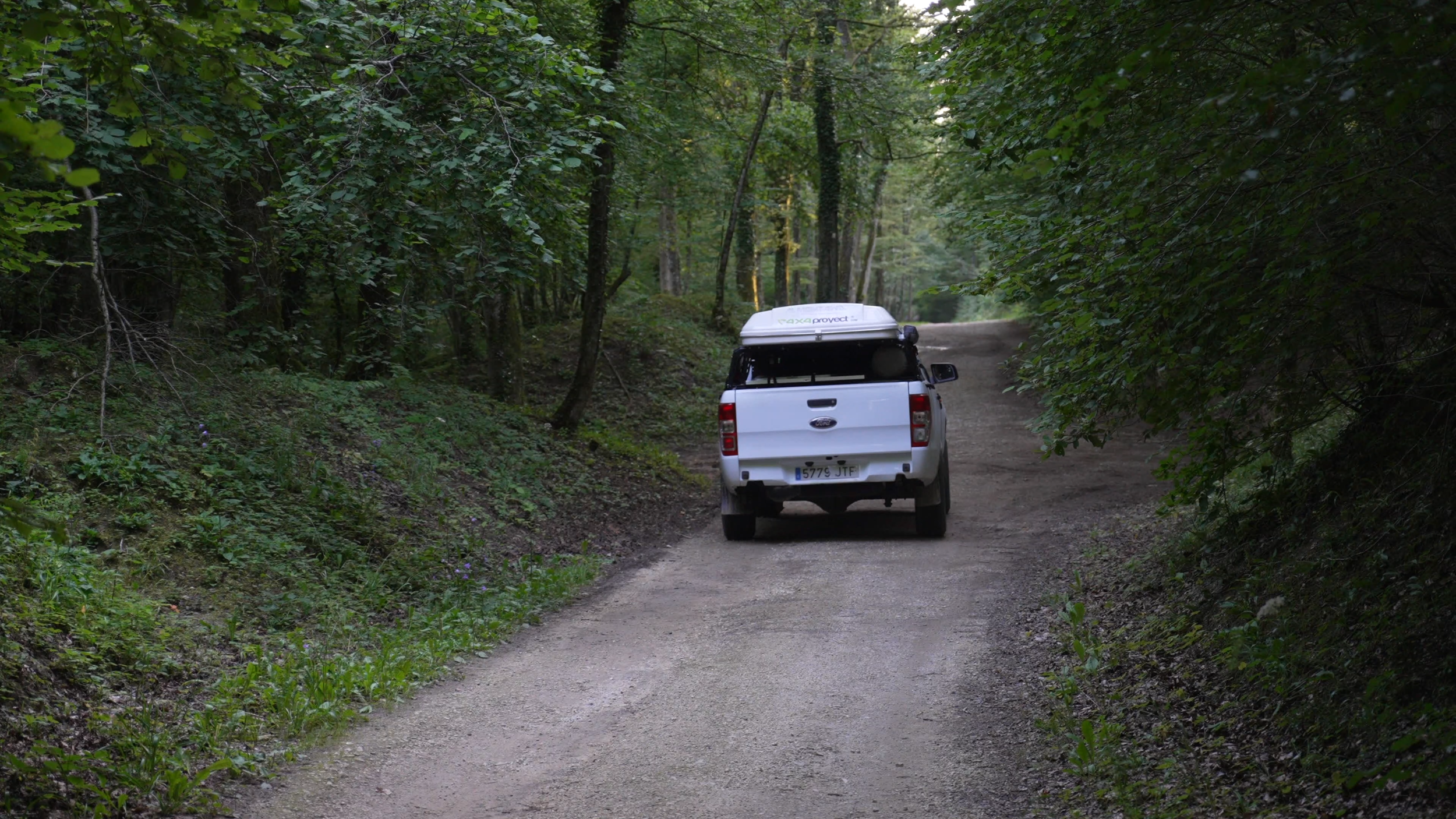
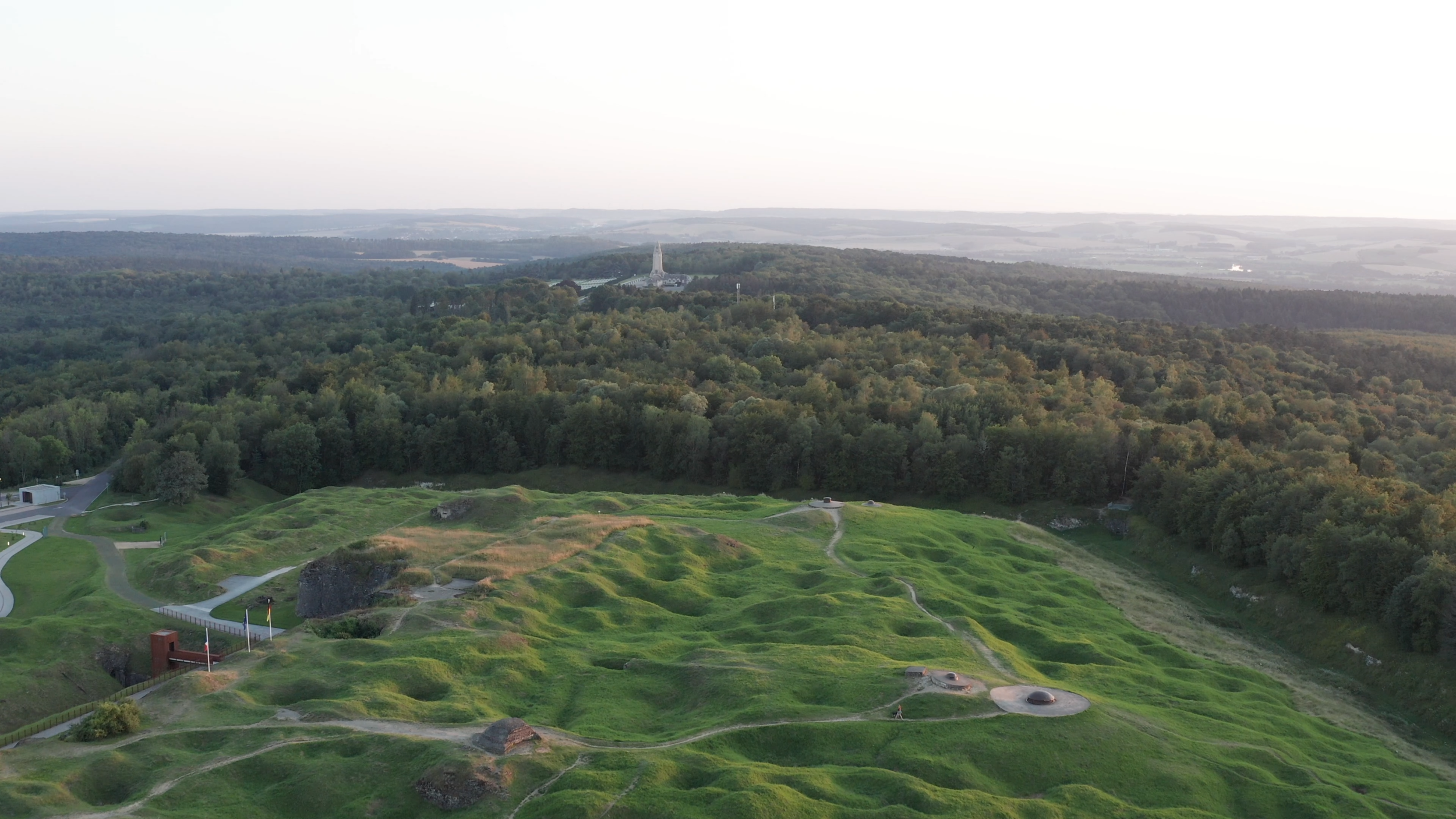
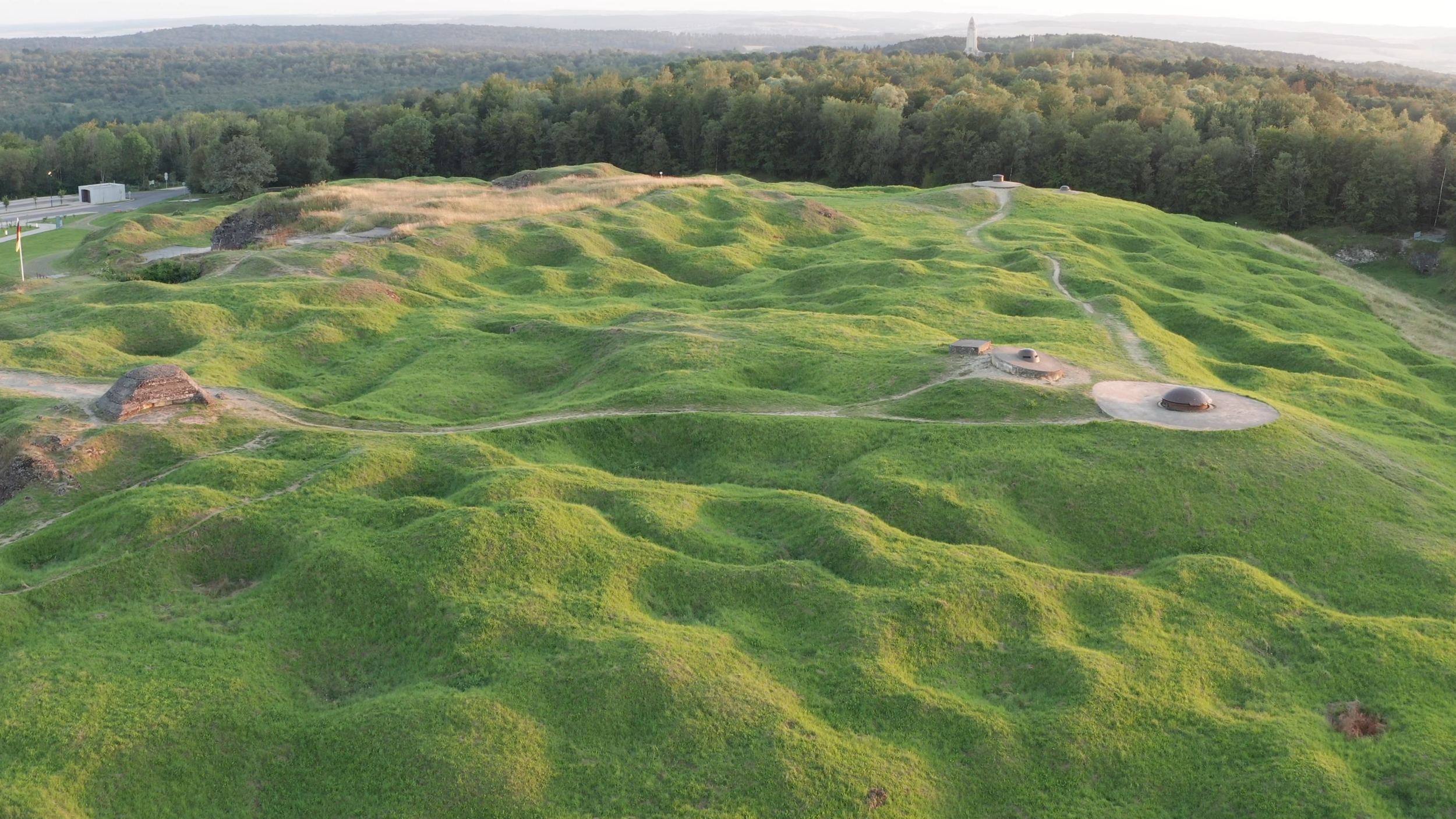
Verdun is located on the historical Western Front. WWI brought many industrial developments into warfare, effectively drawing the frontline into a stalemate and leaving hundreds of thousands of soldiers stuck in trench warfare. In Verdun, as in many other places, the front lines moved back and forth on a very small area: the entire battle took place on less than 20 square km. But the German army planned for Verdun to be a “meat grinder” from the very beginning. They chose a site with great historical significance to start a military campaign aiming to decimate both the French forces and their spirits.
Verdun was surrounded from three sides. The French army repaired and laid gravel on a lone narrow road, which served as a main supply line for the French forces. The road was used so intensely - one truck passed every 14 seconds - that it had to be maintained constantly, with quarries opening alongside it with the purpose of providing fresh gravel. Only in the first week of operations, 3.000 trucks moved 190.000 soldiers, as well as 25.000 tons of ammunition, food and supplies. Today, the road still exists. It has been paved over, and countless posts mark it as “The Sacred Way”.
The savage conflict left 300.000 dead, and 400.000 more wounded or missing. Many of these humans remain here, a hundred years later: the landscape is dominated by cemeteries with tens of thousands of dead, the Douaumont Ossuary holds the bones of 130.000 unknown soldiers, and another 80.000 men simply lie in the forest, alongside unexploded bombs, covered by eerie hills created by shell fire.
A postwar report on these battlefields described the land as: "Completely devastated. Damage to properties: 100%. Damage to Agriculture: 100%. Impossible to clean. Human life impossible." But the area was not to be left to the atrocities of war. A forest was to be planted; 36.000.000 trees were planted on land devastated by grenades, some of them German pine from the Black Forest, provided as war reparations. The forest stands thick and lush as a prominent memorial to both the scope of monstrosities that humans can commit, and the passage of time that makes all evil inevitably fade away.
One French Lieutenant at Verdun who was later killed by an artillery shell wrote in his diary on 23 May 1916
"Humanity is mad. It must be mad to do what it is doing. What a massacre! What scenes of horror and carnage! I cannot find words to translate my impressions. Hell cannot be so terrible. Men are mad"
The trails we take are easy, and they allow us to pay more attention to our surroundings. The forest offers refuge from the heat and other visitors, and makes the visit all the more solemn and momentous.
Verdun offers inconceivable numbers, unthinkable statistics, and heartbreaking stories on every corner and at every site. We are in awe but somewhat relieved to drive away from the battlefield, having spent there just long enough for the tragedy to sink in fully, but not long enough for the story to start becoming commonplace and mundane.
